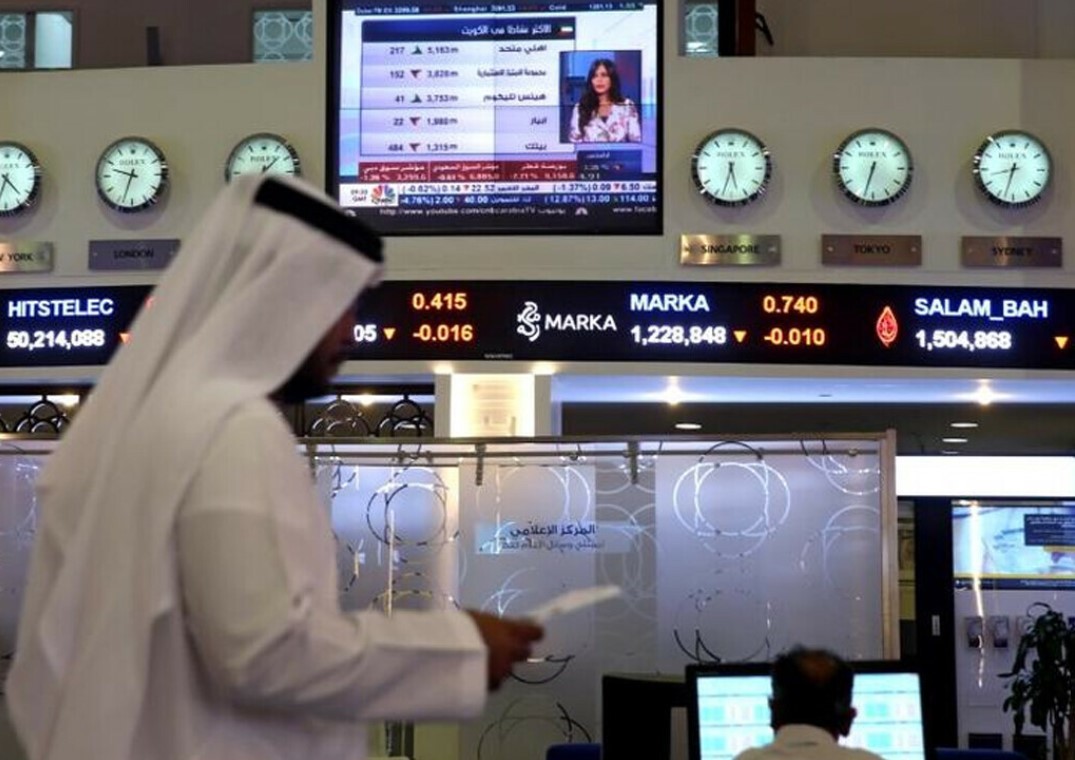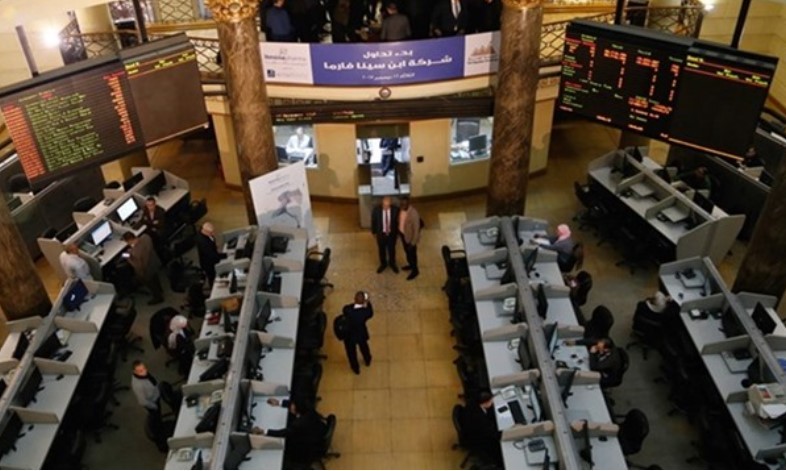Middle East Calendar 2025 - Public Holidays: Significances and Celebrations
1. Overview of Public Holidays in the Middle East
Public holidays are important fixtures of cultural, religious, and national significance in every country, and the Middle East is no exception. In this region, holidays often carry special religious meaning, with the Islamic calendar playing a central role. Compared to secular holidays in other parts of the world, the Middle East emphasizes religious observance, family gatherings, and community values.
A unique aspect of Middle Eastern holidays is the use of the lunar Hijri calendar for Islamic holidays, which results in dates shifting each year in the Gregorian calendar. Public holidays here vary greatly, covering religious observances, national commemorations, and international observances.
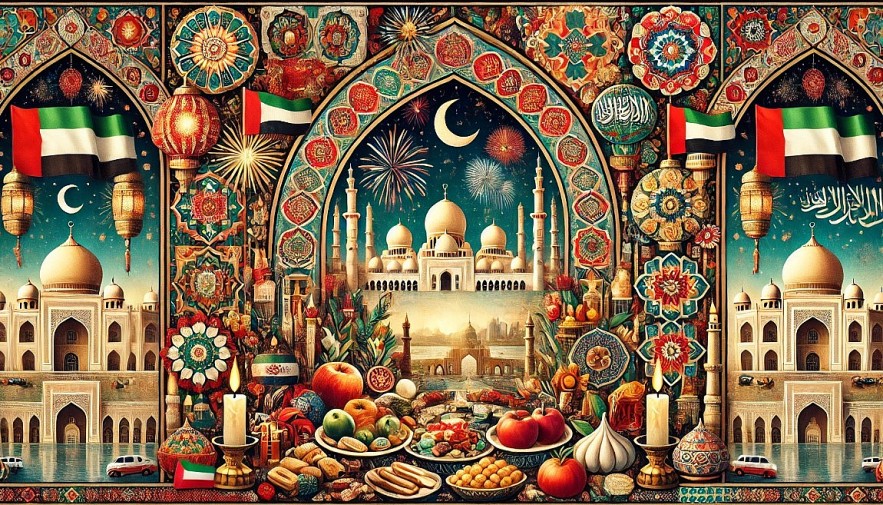 |
| Middle Eastern Holidays |
2. Types of Holidays in the Middle East
Public Holidays
Public holidays in the Middle East are official days off mandated by the government. On these days, schools, banks, and government offices are closed. Examples include Eid al-Fitr, Eid al-Adha, and national days like Saudi National Day. These are days when both public and private sectors typically halt operations.
Religious Holidays
Religious holidays dominate the Middle Eastern calendar, reflecting the centrality of Islam in daily life. Major religious holidays like Ramadan, Eid al-Fitr, and Eid al-Adha are celebrated across Muslim-majority countries. Additionally, observances such as the Islamic New Year and the Prophet Muhammad’s birthday (Mawlid al-Nabi) hold special significance, with most countries declaring official public holidays.
Regional and International Observances
While certain holidays are universal across Middle Eastern countries, some holidays are region-specific or linked to international observances, such as Kuwait’s Liberation Day or International Women’s Day. Certain international observances, such as Mother’s Day, have been adopted in select Middle Eastern nations, although these generally remain unofficial.
Official vs. Unofficial Holidays
There is a legal distinction between official holidays, which mandate institutional closures, and unofficial holidays or observances, which may be celebrated without formal closures. International holidays such as Valentine’s Day, for example, are popular in some urban areas but are generally not recognized as official holidays.
3. Full List of Public Holidays in the Middle East for 2025
Below is a month-by-month guide to key holidays in the Middle East for 2025, detailing dates, significance, public holiday status, and whether schools and workplaces are closed.
January
-
New Year’s Day (January 1)
Countries: UAE, Lebanon
Significance: Celebrates the start of the Gregorian calendar year.
Public Holiday: Yes, in UAE and Lebanon.
Closures: Schools and government offices in participating countries.
-
Coptic Christmas Day (January 7)
Country: Egypt
Significance: Observed by Egypt’s Coptic Orthodox Christians to celebrate Jesus's birth.
Public Holiday: Yes, in Egypt.
Closures: Schools, government offices closed in Egypt.
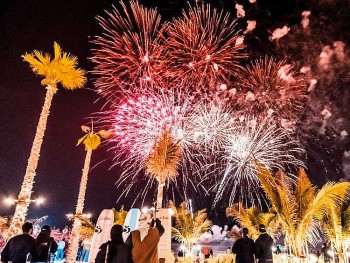 Full List of UAE's Official Public Holidays in 2025 Full List of UAE's Official Public Holidays in 2025 |
February
-
Islamic New Year (February 9)
Countries: Most Muslim-majority countries (date varies by moon sighting)
Significance: Marks the start of the Islamic lunar calendar year.
Public Holiday: Yes, widely recognized.
Closures: Schools, banks, and government offices generally closed.
-
Kuwait National Day (February 25)
Country: Kuwait
Significance: Celebrates Kuwait's independence, with parades and public events.
Public Holiday: Yes, in Kuwait.
Closures: Schools, government offices, businesses closed.
-
Kuwait Liberation Day (February 26)
Country: Kuwait
Significance: Commemorates Kuwait’s liberation from Iraqi occupation in 1991.
Public Holiday: Yes, in Kuwait.
Closures: Schools, government offices, and businesses.
-
Valentine’s Day (February 14)
Countries: Observed unofficially in Lebanon, Jordan, UAE
Significance: Celebrates romantic relationships, especially popular in urban areas.
Public Holiday: No, an observance.
Closures: None.
March
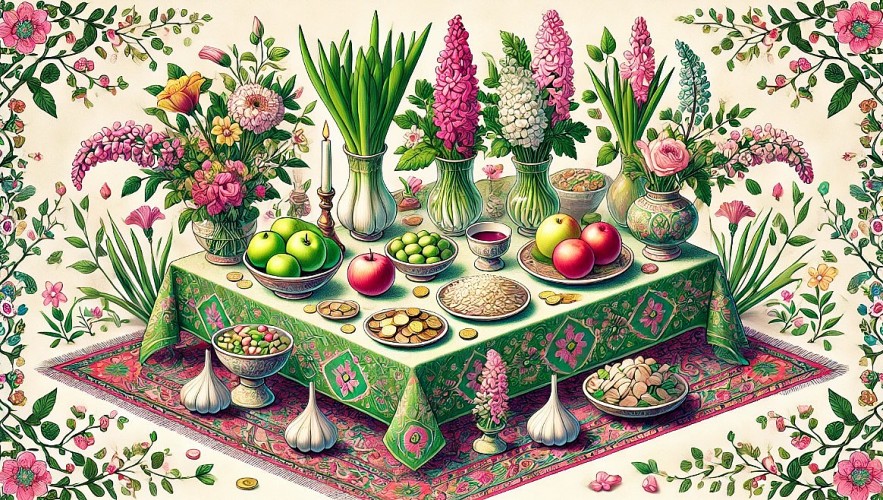 |
| The Haft-Seen table for Nowruz |
-
International Women’s Day (March 8)
Countries: Observed in Lebanon, Egypt, Iran
Significance: Celebrates women’s achievements and contributions to society.
Public Holiday: No, an observance.
Closures: None.
-
Mother’s Day (March 21)
Countries: Egypt, Lebanon, UAE, Jordan
Significance: Honors mothers and maternal figures.
Public Holiday: No, an observance.
Closures: None.
-
Nowruz (March 20-21)
Countries: Iran, parts of Iraq, Lebanon
Significance: Persian New Year, celebrating the arrival of spring.
Public Holiday: Yes, official in Iran and Kurdish regions.
Closures: Schools and government offices in participating areas.
 Mother's Day: Best Wishes, Quotes and Sweet Messages Mother's Day: Best Wishes, Quotes and Sweet Messages |
April
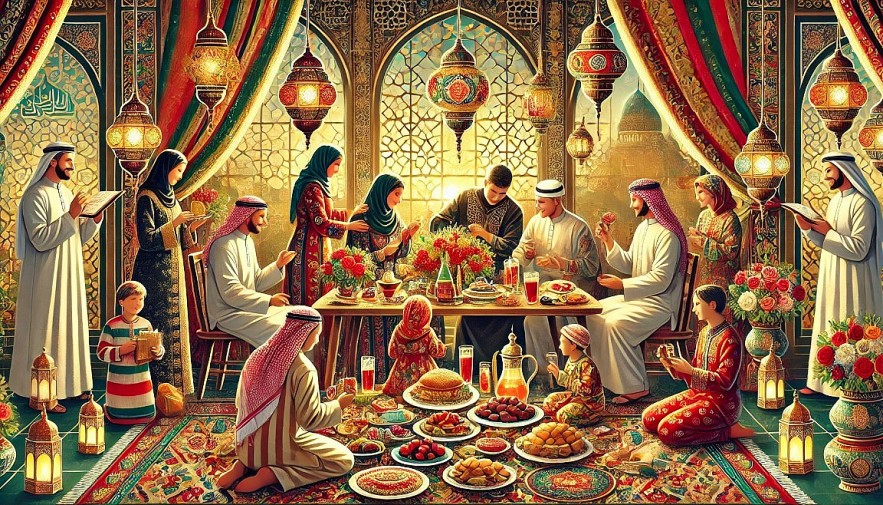 |
| Eid al-Fitr and Eid al-Adha celebrations |
-
Eid al-Fitr (April 9-11)
Countries: All Muslim-majority countries
Significance: Celebrates the end of Ramadan, marked by prayers, family gatherings, and charity.
Public Holiday: Yes, universally recognized.
Closures: Schools, banks, and government offices closed.
May
-
Labor Day (May 1)
Countries: Lebanon, Jordan, Iraq, Egypt
Significance: Honors workers and labor unions.
Public Holiday: Yes, in select Middle Eastern countries.
Closures: Schools and government offices closed.
June
-
Eid al-Adha (June 16-19)
Countries: All Muslim-majority countries
Significance: Commemorates Ibrahim’s willingness to sacrifice his son in obedience to God.
Public Holiday: Yes, major holiday throughout the region.
Closures: Schools, banks, and government offices closed.
July
-
Revolution Day (July 23)
Country: Egypt
Significance: Marks the anniversary of the Egyptian Revolution of 1952.
Public Holiday: Yes, in Egypt.
Closures: Schools, government offices.
-
Islamic New Year (July 27)
Countries: Observed in most Muslim-majority countries (date varies)
Significance: Beginning of the Islamic lunar year.
Public Holiday: Yes, in most Islamic countries.
Closu
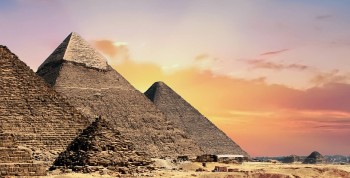 Egypt Calendar 2025 - Full List of Public Holidays, Observances And Celebrations
Egypt Calendar 2025 - Full List of Public Holidays, Observances And Celebrations
August
-
Ashura (August 25)
Countries: Iran, Iraq, Bahrain, Lebanon (primarily in Shia regions)
Significance: Remembers the martyrdom of Husayn ibn Ali, especially important for Shia Muslims.
Public Holiday: Yes, in Shia-majority areas.
Closures: Schools, banks, government offices.
September
-
Saudi National Day (September 23)
Country: Saudi Arabia
Significance: Celebrates the unification of Saudi Arabia in 1932, marked by parades and public events.
Public Holiday: Yes, national holiday in Saudi Arabia.
Closures: Schools, government offices, many businesses.
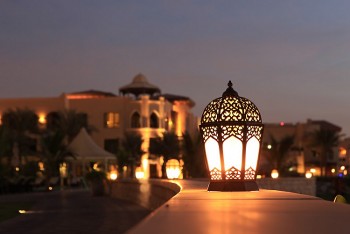 Saudi Arabia Calendar in 2025 - Full List of Public Holidays, Observances And Celebrations Saudi Arabia Calendar in 2025 - Full List of Public Holidays, Observances And Celebrations |
November
-
Prophet Muhammad’s Birthday (Mawlid al-Nabi, November 5)
Countries: Most Muslim-majority countries
Significance: Celebrates the birth of the Prophet Muhammad, marked by communal prayers.
Public Holiday: Yes, recognized across the Middle East.
Closures: Schools, banks, government offices generally closed.
-
International Day of Tolerance (November 16)
Countries: UAE
Significance: Promotes cross-cultural understanding and tolerance.
Public Holiday: No, an observance.
Closures: None, marked by educational programs.
December
-
UAE National Day (December 2)
Country: United Arab Emirates
Significance: Commemorates the unification of the seven emirates.
Public Holiday: Yes, in the UAE.
Closures: Schools, government offices, businesses closed.
4. Unique National Holidays in the Middle East
Each Middle Eastern country has distinct national holidays reflecting its unique cultural identity, historical milestones, and heritage. These holidays are central to national pride and often feature large public celebrations, parades, and traditional festivities.
Saudi National Day (September 23) - Saudi Arabia
- Significance: Saudi National Day commemorates the founding of the Kingdom of Saudi Arabia in 1932 by King Abdulaziz Al Saud. On this day, the various regions unified under the name "Saudi Arabia," establishing the modern state.
- Celebrations: Saudi National Day is marked by vibrant events across the country, including fireworks, traditional dance performances, concerts, and parades. Saudi citizens display the national flag, and cities are adorned with green lighting and decorations in homage to the country’s colors. In recent years, public and private sectors host events like art shows, cultural exhibitions, and sports tournaments to celebrate the day.
- Observance: Schools, government offices, and many businesses close on this day, allowing citizens to fully participate in the celebrations.
UAE National Day (December 2) - United Arab Emirates
- Significance: UAE National Day celebrates the unification of the seven emirates (Abu Dhabi, Dubai, Sharjah, Ajman, Umm Al-Quwain, Fujairah, and Ras Al-Khaimah) into a single nation in 1971. This historic day marked the formation of the United Arab Emirates under the leadership of Sheikh Zayed bin Sultan Al Nahyan.
- Celebrations: UAE National Day is one of the most celebrated events in the country, with a series of grand festivities. Major cities like Dubai and Abu Dhabi host parades, fireworks, concerts, and air shows, often featuring the UAE Air Force's aerobatic team. Citizens and residents adorn their homes, vehicles, and public spaces with the national colors, creating a festive atmosphere throughout the country. Traditional Emirati music, dance performances, and cultural exhibitions are organized to honor the nation’s heritage.
- Observance: Schools, government offices, and many businesses close, allowing families and communities to gather for the celebration.
Nowruz (March 20-21) - Iran and Kurdish Regions
- Significance: Nowruz, or Persian New Year, marks the first day of spring and the start of the new year in the Persian calendar. Rooted in ancient Persian traditions, Nowruz is celebrated across Iran and by Kurdish communities in Iraq, Turkey, and Syria. It is recognized as a symbol of renewal, prosperity, and family unity.
- Celebrations: Nowruz celebrations span two weeks and include family gatherings, feasts, and various cultural practices. In Iran, people perform spring cleaning (known as "khane tekani"), visit relatives, and prepare a special table called "Haft-Seen," featuring symbolic items starting with the Persian letter “S.” Traditional Iranian foods are prepared, and people participate in “Chaharshanbe Suri” (fire-jumping festival) before Nowruz to symbolically burn away negativity. In Iraq’s Kurdish regions, Nowruz is celebrated with bonfires, traditional Kurdish dances, and festivals.
- Observance: Nowruz is a public holiday in Iran and is observed by Kurdish communities across the Middle East, with schools, government offices, and businesses closed in Iran.
Egypt Revolution Day (July 23) - Egypt
- Significance: Egypt’s Revolution Day commemorates the 1952 Egyptian Revolution, which ended the monarchy and established the Republic of Egypt. This day marks the success of the Free Officers Movement in ending British colonial influence and reshaping Egypt’s national identity.
- Celebrations: Revolution Day is typically observed with military parades, cultural events, and television programs reflecting on Egypt’s history and the revolution’s impact. Nationalistic songs, speeches, and films about the revolution are broadcasted to honor the sacrifices made for Egyptian independence.
- Observance: Schools and government offices close, allowing the Egyptian people to participate in events and reflect on the country’s progress since independence.
Independence Day (March 25) - Lebanon
- Significance: Lebanon’s Independence Day marks the end of French mandate rule and the establishment of an independent Lebanese state in 1943. This day celebrates Lebanon’s sovereignty and honors the resilience and unity of the Lebanese people.
- Celebrations: Beirut, Lebanon’s capital, hosts a grand military parade attended by government officials, military personnel, and citizens. Throughout the country, people gather for family celebrations, and the Lebanese flag is prominently displayed in public spaces. Traditional Lebanese music and folk dances are performed at cultural festivals, showcasing Lebanese heritage and pride.
- Observance: Schools, government offices, and businesses close to allow nationwide participation in the Independence Day celebrations.
Kuwait National Day (February 25) and Liberation Day (February 26) - Kuwait
- Significance: Kuwait National Day celebrates the country's independence from British protection, achieved in 1961. Liberation Day, on the following day, commemorates Kuwait’s liberation from Iraqi occupation in 1991 during the Gulf War.
- Celebrations: These two consecutive holidays are celebrated with large-scale public events, fireworks, and traditional music performances. Citizens decorate their homes and streets with national flags, and Kuwait City organizes parades and cultural festivals. Liberation Day is especially meaningful, reflecting on Kuwait’s resilience and the sacrifices made for freedom.
- Observance: Schools, government offices, and businesses are closed on both days, enabling citizens to participate fully in the celebrations.
Oman National Day (November 18) - Oman
- Significance: Oman National Day commemorates Oman’s independence and honors the late Sultan Qaboos bin Said, who was born on this day and is credited with modernizing the nation.
- Celebrations: National Day is marked by parades, traditional Omani dance and music, and fireworks displays. The entire country participates in festivities, with major cities organizing cultural exhibitions showcasing Omani heritage. It’s a time for Omanis to express their pride in their culture and progress.
- Observance: Schools, government offices, and many businesses close to celebrate this national holiday.
These unique national holidays reflect each Middle Eastern country’s history, culture, and national pride, showcasing a variety of observances that highlight the resilience and achievements of each nation. Each holiday is deeply significant to the people of these countries, with celebrations that emphasize both tradition and progress, bringing communities together in celebration of shared identity and heritage.
Conclusion
Public holidays in the Middle East are unique in their strong religious orientation, rooted in the Islamic lunar calendar and cultural heritage. While the region shares some common holidays, each country has unique observances that highlight its distinct history and identity. These public holidays emphasize community, family, and faith, providing insights into the cultural values that define Middle Eastern societies.
Frequently Asked Questions (FAQs)
-
Why do Islamic holidays vary each year?
Islamic holidays follow the Hijri (Islamic) lunar calendar, which is about 10-12 days shorter than the Gregorian calendar. This causes Islamic holiday dates to shift each year in the Gregorian calendar. For example, Eid al-Fitr and Eid al-Adha are celebrated roughly 10 days earlier each subsequent year.
-
Are international holidays like Valentine’s Day and Mother’s Day celebrated in the Middle East?
Yes, some international holidays such as Valentine’s Day and Mother’s Day are observed, especially in urban areas and more culturally open countries. However, these are generally celebrated as observances without official public holiday status. Businesses and schools remain open on these days.
-
What are the most significant public holidays in the Middle East?
The most widely celebrated holidays include Eid al-Fitr (marking the end of Ramadan), Eid al-Adha (commemorating Ibrahim's willingness to sacrifice), and each country’s national day (such as Saudi National Day on September 23 or UAE National Day on December 2). These holidays are highly significant, with most schools, banks, and government offices closed.
-
What is the Hijri calendar, and how does it affect holiday observance?
The Hijri calendar is a lunar calendar used in Islamic tradition, consisting of 354 or 355 days. Since it’s shorter than the 365-day Gregorian calendar, Islamic holidays shift about 10 days earlier each year. This calendar is primarily used to determine the dates of religious observances.
-
Are schools and government offices always closed on public holidays in the Middle East?
Yes, for recognized public holidays, government offices, banks, and most schools close. However, private businesses may operate at reduced hours depending on the holiday and country.
-
Is Nowruz celebrated widely across the Middle East?
Nowruz, or Persian New Year, is primarily celebrated in Iran and among Kurdish communities in Iraq, Lebanon, and some other countries. It is a public holiday in Iran and marks the start of spring with traditional celebrations. Outside of these regions, Nowruz is less commonly observed.
-
How are religious holidays observed differently in Shia and Sunni communities?
While many holidays are observed by both Shia and Sunni Muslims, Ashura is especially significant in Shia communities, commemorating the martyrdom of Husayn ibn Ali. This day holds more ceremonial weight for Shia Muslims, especially in countries with significant Shia populations like Iran, Iraq, Bahrain, and Lebanon.
-
Do all Middle Eastern countries observe the same public holidays?
While Islamic holidays like Eid al-Fitr and Eid al-Adha are celebrated across the region, each country has its own set of national and cultural holidays. For example, Saudi National Day (September 23) and UAE National Day (December 2) are unique to their respective countries, commemorating historical milestones specific to their national identities.
-
Why are some holidays celebrated for multiple days?
Major Islamic holidays, such as Eid al-Fitr and Eid al-Adha, are celebrated over several days to allow time for family gatherings, prayers, and traditional customs. These multi-day holidays provide ample time for both religious observance and community celebrations.
-
Is the observance of holidays uniform across the Middle East, or does it vary?
Observance of holidays can vary based on cultural, political, and religious factors. For example, Iran and Turkey celebrate Nowruz, while Gulf countries like Saudi Arabia do not. Additionally, religious observance levels may vary based on community demographics, such as Shia and Sunni differences in observing Ashura.
-
Are there any secular or non-religious holidays in the Middle East?
National days, such as Saudi National Day, UAE National Day, and Egypt’s Revolution Day, are secular holidays celebrating national pride, independence, or significant historical events. These are widely celebrated but generally do not carry religious connotations.
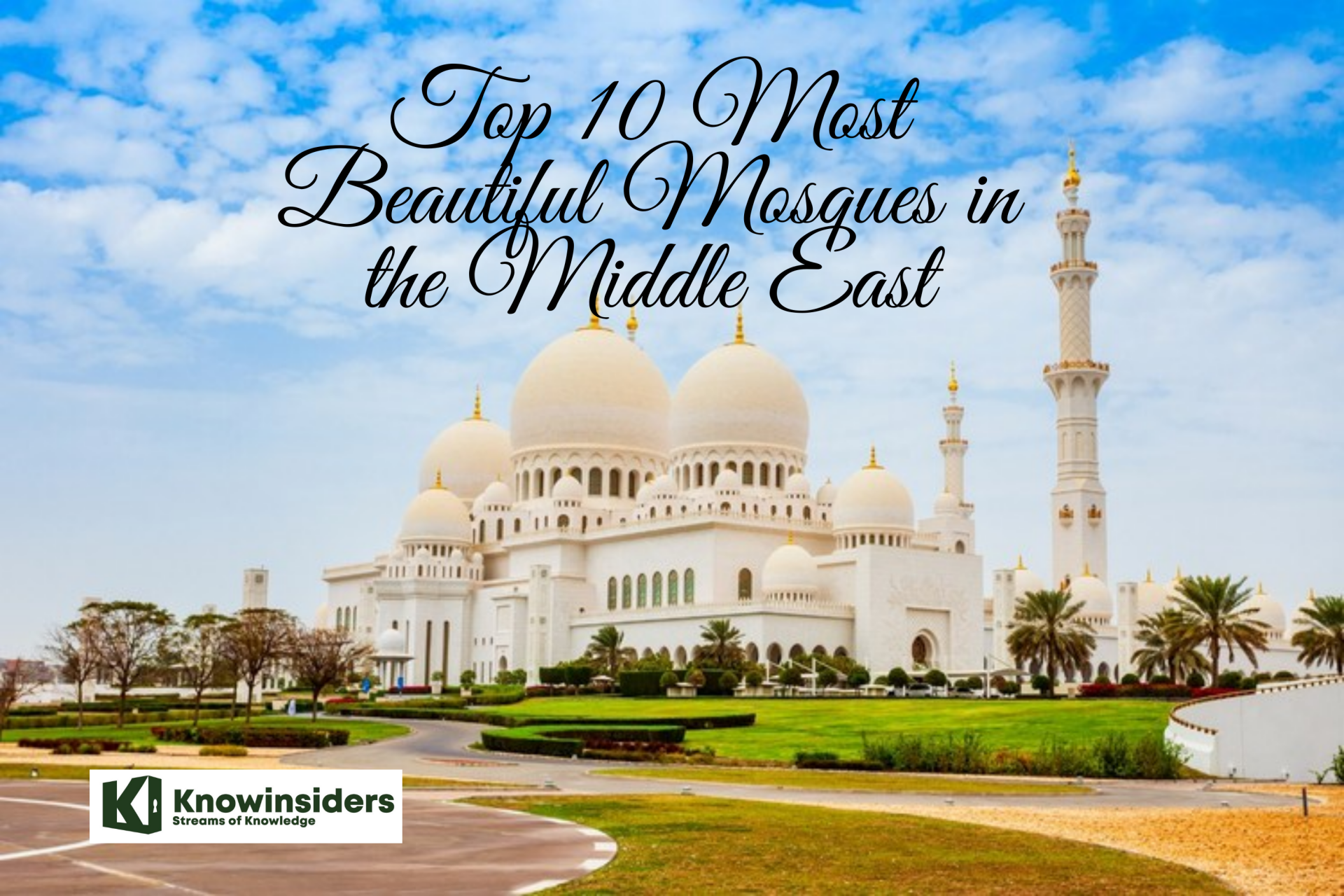 Top 10 Most Beautiful Mosques in the Middle East Top 10 Most Beautiful Mosques in the Middle East Whether modern or traditionally ornate, a mosque celebrates the purity of the Islamic faith. Check out the 10 most beautiful mosques in the Middle East ... |
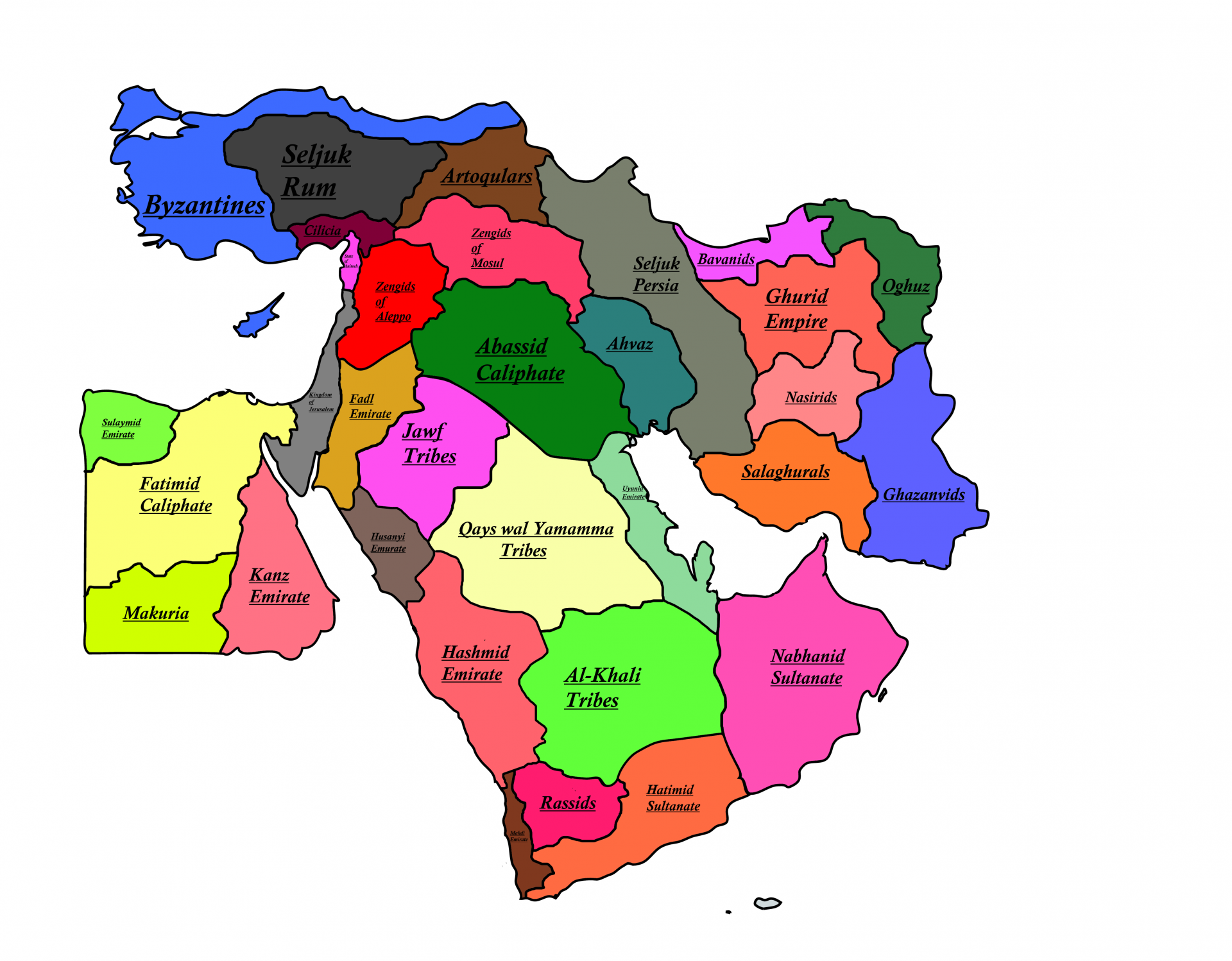 How Many Countries Are There In The Middle East Today: Facts, Figures and Population How Many Countries Are There In The Middle East Today: Facts, Figures and Population The Middle East includes countries that share common factors like ethnic groups, geographic features, religious beliefs, and political history. How many countries are there in ... |
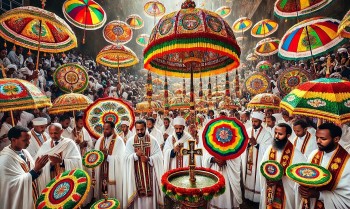 Africa Calendar 2025 - List of Public Holidays and Celebration Africa Calendar 2025 - List of Public Holidays and Celebration This article delves into the national holidays across African countries in 2025, showcasing the diverse customs, celebrations, and values that these holidays embody. |


